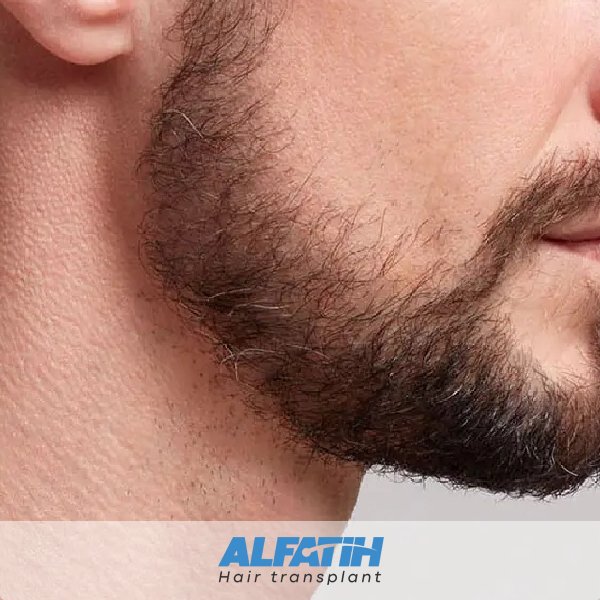Beard and mustache transplantation is not suitable for all cases.
In cases of hormonal imbalance, for example (which may result from a disorder in the thyroid gland or other glands), in which the balance of the female hormones (estrogen) and masculinity (testosterone) in a man is disturbed.
It shows several symptoms such as thinning of the voice, facial hair loss and other symptoms. In this case, treatment begins first by adjusting the hormonal balance. If the symptoms do not begin to disappear after that, and the beard does not return to growth as a result of the death of the hair follicles in the beard completely, then it is possible to resort to beard hair transplant.
In the event that there are other non-hereditary physical causes such as anemia, diseases resulting from smoking, weak capillaries and other diseases that affect the growth of follicles, whether in the head or in the beard, it is preferable to treat these causes first.
In cases of burns, accidents and other symptoms that do not include physical causes, it is possible to resort to direct hair transplantation of the beard and mustache.
Beard hair loss can be caused by a variety of factors, including:
- Genetics: Just like scalp hair loss, genetics play a significant role in beard density and thickness. Some men are genetically predisposed to having patchy or thin beards.
- Hormonal Imbalances: Testosterone and its derivative, dihydrotestosterone (DHT), are critical for beard growth. Imbalances in these hormones can affect beard growth and cause hair loss.
- Alopecia Areata: This autoimmune condition causes hair to fall out in small patches. It can affect any hair-bearing area, including the beard.
- Stress: Physical or emotional stress can trigger hair loss conditions such as telogen effluvium, where hair follicles enter a resting phase and fall out more easily.
- Nutritional Deficiencies: A lack of essential nutrients like vitamins (especially Vitamin D and B vitamins), minerals (such as iron and zinc), and proteins can affect hair growth and health.
- Skin Conditions: Conditions such as dermatitis, fungal infections, and folliculitis can cause inflammation and hair loss in the beard area.
- Trauma or Injury: Physical damage to the skin, such as burns, cuts, or scars, can result in permanent hair loss in the affected area.
- Medications: Certain medications can have side effects that include hair loss. These can include chemotherapy drugs, retinoids, and some medications for heart disease and depression.
- Poor Hygiene: Poor skin hygiene can lead to infections and inflammation, which can affect beard growth.
- Age: As men age, hair growth can slow down, and hair can become thinner and fall out more easily.
Addressing beard hair loss involves identifying the underlying cause. Depending on the cause, treatments can range from improving nutrition and managing stress to medical treatments like minoxidil, hormone therapy, or even surgical options like hair transplantation. Consulting with a healthcare professional or a dermatologist can help determine the most appropriate course of action.



